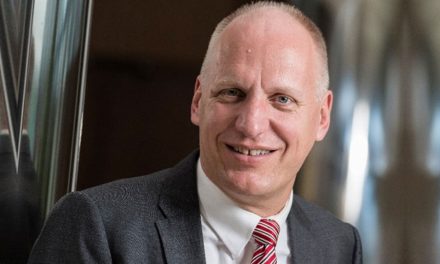
Egypt Post harnesses technology
World Mail Review interviews Eng. Alaa Fahmy, Chairman of Egypt Post. November 2008
Can you provide World Mail Review readers with a brief overview of Egypt and Egypt Post?
Established in 1865, Egypt Post (EP) is considered one of the biggest service providers in Egypt, providing services to a population of 78m, of which 18m hold savings accounts.The population is spread over 218 cities and 4500 villages. EP has more than 52,000 employees, a network of 3,700 post offices (of which to date more than 1,500 have been completely modernised), 120 sorting & distribution centres and 1300 vehicles.
Its traditional services are the collection, transmission, and delivery of parcels and letters; financial services such as the operation of current and savings accounts, postal orders, money collection and bill payment services; as well as governmental, e-government and societal services.
Egypt Post’s current network and customer base is larger than the entire Egyptian banking sector. During the 2006 financial year, EP had an increase in savings account holders of 2.5m. Deposits increased from LE43bn to LE54bn. Current accounts increased from LE0.9bn to LE1.7bn. Also, the number of transactions over the counter increased from 105m to 129m.
Some of the operations have been re-examined and redeveloped to provide a broader social service to the community. The service agent’s role will expand from just delivery of mail to encompass more market oriented services by capitalising on the trust that he enjoys from the citizens.
Please explain the general communications environment in Egypt. What sort of challenges and opportunities does this present for Egypt Post? Do you have a role in the development of e government in the country?
Egypt is witnessing major and sweeping changes in its ICT infrastructure. EP is responding by upgrading its mail services and adding new services that help keep customers up to date with the revolution taking place in the ICT field.
In this context Egypt Post has created a national e-mail service in collaboration with Google and Microsoft. A newly deployed IT system has been developed in conjunction with Alcatel, Cisco Systems, Siemens, Ericsson and others. Egypt Post is offering its customers modern postal services as well as promoting e-services such as e-mail, e-signature facilities and e-government services.
It is building up its financial services operations in conjunction with local banks. In this area EP has launched two new products, namely CMS (Certified Mail Service) and the e-payment service Gironil. Also IFS (International Financial System) has been implemented to meet customers’ needs to transfer their money in a safe, fast and a reliable way worldwide.
Do you see Egypt Post’s role as essentially about physical communication, or communication irrespective of delivery method (e mail/text/SMS etc)?
Egypt Post is working to develop other communication channels with our customers such as direct mail, bulk sms and recently Misr Mail. Egypt Post collaborated with major IT companies to provide its customers with a national e-mail service. This will provide Egypt Post with the ability to communicate with its customers through the internet. The bulk sms service will allow EP to provide its customers with necessary information on a regular basis, as well as keeping its clients updated on the latest products and services offered by Egypt Post.
You and your team have inaugurated a period a major change. What have you done to develop the skills of your employees and bring them with you in the change process?
Egypt Post’s workforce of more than 52,000 employees represents the façade of the organisation, so they are given the best training and rehabilitation programmes and are provided with better working conditions. Egypt Post employees are to be trained and their skills are to be improved in order to fulfill customers’ demands and to improve customer satisfaction. Employee training programmes are costing LE18m every year.
What do you see as the strategic role of technology in Egypt Post? For example, how are you using technology to develop new products and services?
One of the three main pillars of our restructuring process is Infostructure. Building an advanced ICT infrastructure is a critical cornerstone of the transformation process.
A postal information network has been designed and built to connect individual post offices: to date 3,100 post offices have connected networks. Both the state of the art data centre at Ramsis and its back up centre at Smart Village underwent an overall upgrade for the lines, servers and equipment.
EP has signed a four year agreement for the implementation of the SAP ERP (Enterprise Resource Planning) system that is necessary for the support of the quadri-system of services.
Egypt Post intends to change its counter applications to a universal counter application so that customers can be offered all services at each counter. The state of the art technology implemented guarantees all service transactions, even if the connection is down.
Egypt Post has a number of technological partnerships with other posts. Can you tell us something more about how these partnerships operate?
In response to the market environment that calls for encouraging private sector development, pursuing financial reform, and promoting foreign direct investment, Egypt Post has entered into joint co-operation agreements with other international mail companies and local financial institutions in order to create win-win situations for all parties that maximise mutual benefits and attract foreign investment.
Egypt Post signed a “Twinning” contract with the European Union on 26th February 2007, under which the French La Poste exchanges with EP know how in the fields of regulation, quality of service, marketing, and financial services. The expected period for this partnership is 23 months and the total cost eligible for financing is estimated at €1.4m. This agreement is considered as a two way flow of expertise and investment.
This agreement was followed by the recent signing of an MOU (Memorandum of Understanding) between Egypt Post and Poste Italiane, an organisation which demonstrates best practices in the deployment of technology in the postal industry. This agreement aims to exchange experiences in the fields of ICT management, the development of products and services, human resources development, logistic network development, and asset evolution. Mutual exchanges on each of these topics will take place through specialised working groups operating under the supervision of a Steering Committee. The respective CIOs are already working on a joint project (SPVN), a secured connection that will be activated to help in the mutual exchange of data and information in a secured and reliable flow.
Egypt Post’s biggest investment is through a framework service agreement with the third biggest mobile phone operator in Egypt, Etisalat Egypt. Under this agreement EP owns 20% of Etisalat Egypt. Egypt Post’s innovative idea was to use all its assets and a number of its services to support the emerging mobile telephony company in conducting its business more efficiently. Etisalat will be using the biggest distribution network in Egypt, that of Egypt Post, to put up its communication towers for a rental fee; and to use EP’s outlets to sell its products, thereby giving it an extensive reach to its customers all over the country. A service agreement gives Etisalat access to Egypt Post’s infostructure for processing payments and issuing prepaid phone cards amongst other things.
The existing staff in 1,500 post offices will be providing retail services to Etisalat customers. The human capital that drives postal operations is not only huge but usually has a very solid relationship with the community in which it operates. The service agreement between both entities significantly leverages EP’s human resources.
What other benefits have your customers seen from all this change?
There has been a radical change in the infrastructure as the former name of Egypt National Postal Organization (ENPO) was changed to the new commercial name Egypt Post in order to attract a wider range of customers.
More than two thirds of post offices have been modernised and fully equipped with the latest technology such as computers, LAN lines, and local servers.
More post offices have been built in order to offer customers fast and reliable services. In addition the universal window system allows each counter to offer all services to customers.
All this will help in facilitating the process of providing new and better services to our customers. This will keep them interested in Egypt Post, and help to guarantee their loyalty, as well as improving their levels of satisfaction which is our ultimate goal. Egypt Post staff are being well trained and given more attention in order to be more customer oriented and fulfill their tasks in a better and more efficient way.
This year Egypt Post is the lead sponsor for PosTech. What were the reasons you decided to sponsor?
We believe that holding PosTech 2008 and the exhibition accompanying it provides a great opportunity to highlight the latest international best practices in the postal technology industry, as well as providing a showcase for mega ICT companies to demonstrate their latest technological innovations. PosTech 2008 provides the opportunity to examine and witness integrated solutions that can be used in organisations and companies working in the postal sector. There will be a sharing of knowledge, encouraging technological initiatives and learning from best applications and practices that combine the latest ICT technologies with postal operations.
For these powerful reasons, EP decided to host PosTech 2008 in Egypt under its umbrella.












